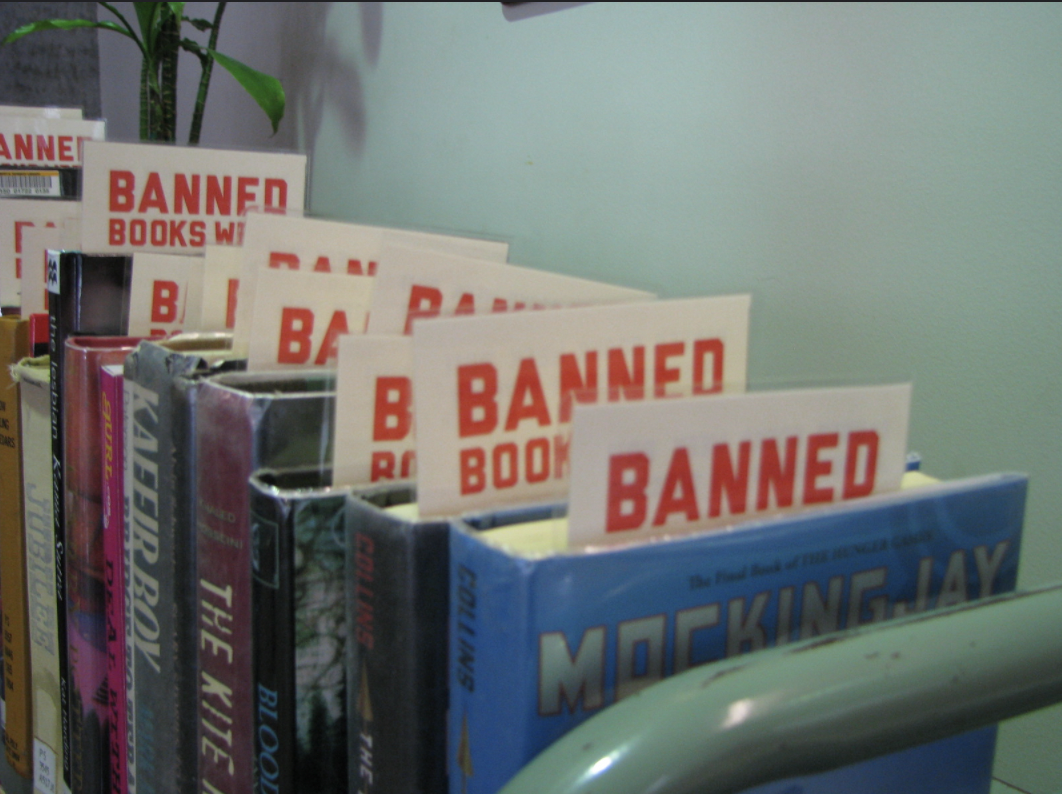Book bans: Do they censor important topics?
/Throughout time, book banning has occurred across the globe, influenced by society and major events happening at the time. In 1954 Mickey Mouse comics were banned in East Berlin due to theories that Mickey was an “anti-Red rebel”. In 1807, Dr. Thomas Bowlder, an English physician, revised and put out “modest” editions of Shakespeare’s work. Lewis Carroll’s “Alice in Wonderland” was banned by the governor of Hunan Province in China in 1931 because he said putting animals and humans on the same level was disastrous.
Something a majority of these bans and burns have in common is that the act is driven by fear. When understanding why books are being banned, it's important to see whether it is because of differing morals/beliefs or if it is to prevent actual harm.
Zoe Ashworth, a graduating Hutchins major at Sonoma State University said, “It depends on why the book is being banned. If it’s disrespectful or doing harm to someone then it should be. Who is the author and what is the story line? I think of banned books as not being in the library because they represent a side of history that makes someone uncomfortable.”
In the United States, book bannings are a topic that children first come across in elementary school.
“There are some books that are obviously not suited for children at a young age, so it makes sense that those books are banned for them. However, I think once they reach an age where they’re able to comprehend the situation and or context of the books, then they should be able to read any books,” said an anonymous SSU student.
Books are usually banned on the basis that they are taboo or inappropriate, and it’s important to recognize the difference between the two terms. According to merriamwebster.com, taboo is defined as: “Banned on grounds of morality and taste.” Considering something taboo is subjective and where one person might find it to be, another might not. Where one might be offended by a topic such as homosexuality, another, who is apart of that comminity, will feel shame and fear that their identity isn’t being accepted or talked about.
Grouping topics like sex, religion, and race into both innappropriate and taboo influences one to grow up believing they can’t talk about any of them. It may be inappropriate to talk about these topics in certain settings, but when it starts to become censorship of history and real things happening, a space for ignorance is created.
Ashworth, a student teacher at a local elementary school, has witnessed ways educators have used books to start realistic conversations about the world around them: “A lot of the teachers here incorporate books that talk about learning disabilities. They’ve chosen to include these books into their curriculum because this is reality for some of their students and students' families. These kids are among other students with disabilities and diverse backgrounds which teachers feel should be taught through books and reading. It opens a space for conversation and acceptance of their peers,” she said.
It’s important to ask why a book is being censored. In 2019, US citizens demanded removal of J.K. Rowling’s Harry Potter because of its depictions of magic, witchcraft, and actual curses and spells. Yes, the topic of magic is offensive to some, but on the other hand, Rowling’s books were also marked to be banned because of the author’s transphobic opinions. Looking from both perspectives and understanding offense from both sides, one can cause more harm than the other to a group of people.
If writing, in any form, is educating, creating a fantasy or anything that is not degrading or oppressing a certain group of people, it shouldn’t be the choice of a higher official to make it inaccessible.
“Fahrenheit 451”, written by Ray Bradbury fictionalized banning and burning books. In the 1953 dystopian novel it was taught that in order to keep society happy and avoid conflict, people were not allowed to form opinions. Bradbury wrote the story in a way to prove the importance of knowledge and identity in society. Essentially, Bradbury’s work encapsulates this entire issue and all its follies: Without knowledge and identity, ignorance and censorship can distract from reality.



